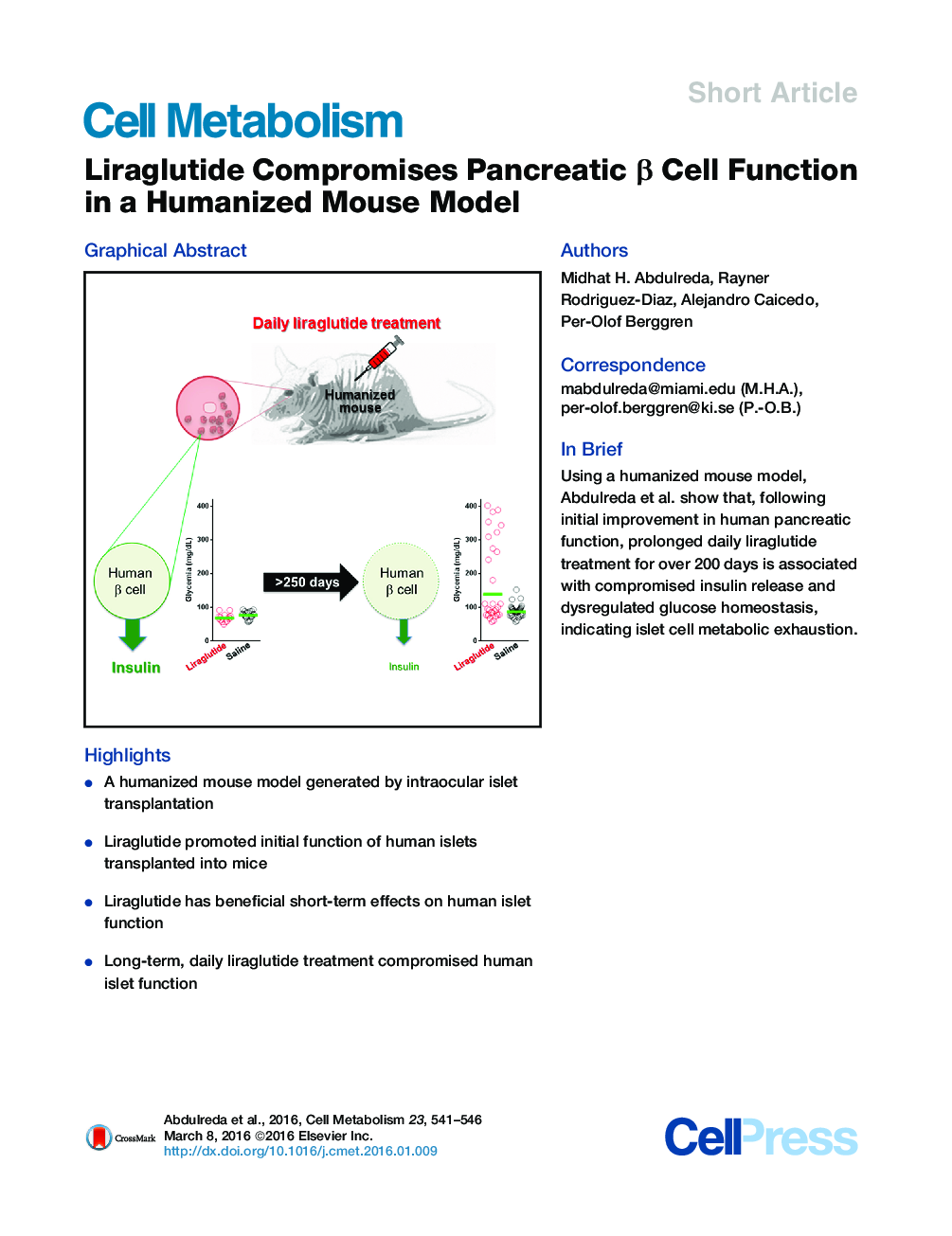| Article ID | Journal | Published Year | Pages | File Type |
|---|---|---|---|---|
| 2792536 | Cell Metabolism | 2016 | 6 Pages |
•A humanized mouse model generated by intraocular islet transplantation•Liraglutide promoted initial function of human islets transplanted into mice•Liraglutide has beneficial short-term effects on human islet function•Long-term, daily liraglutide treatment compromised human islet function
SummaryIncretin mimetics are frequently used in the treatment of type 2 diabetes because they potentiate β cell response to glucose. Clinical evidence showing short-term benefits of such therapeutics (e.g., liraglutide) is abundant; however, there have been several recent reports of unexpected complications in association with incretin mimetic therapy. Importantly, clinical evidence on the potential effects of such agents on the β cell and islet function during long-term, multiyear use remains lacking. We now show that prolonged daily liraglutide treatment of >200 days in humanized mice, transplanted with human pancreatic islets in the anterior chamber of the eye, is associated with compromised release of human insulin and deranged overall glucose homeostasis. These findings raise concern about the chronic potentiation of β cell function through incretin mimetic therapy in diabetes.
Graphical AbstractFigure optionsDownload full-size imageDownload high-quality image (136 K)Download as PowerPoint slide
